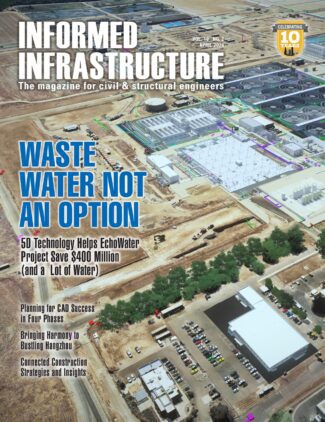MELBOURNE, Fla. – Harris Corporation (HRS) has received a two-year grant to help develop a first-of-its-kind solution to enable beyond-visual-line-of-sight (BVLOS) operations for unmanned aircraft systems (UAS).
Representatives from Harris and North Dakota announced a partnership agreement today to create the first UAS network in the nation to provide a full range of aviation-grade services for safe and efficient UAS BVLOS operations. Representatives then conducted a UAS flight demonstration during Harris' Tech Expo being held February 27-March 3 in Melbourne.
Harris will partner with the University of North Dakota and the Northern Plains UAS Test Site to develop the network infrastructure system under a Research North Dakota grant awarded by the North Dakota Centers of Excellence Commission.
The grant includes the development of aviation-grade network services specifically for UAS operations. It is a continuation of a previous grant that included development and a risk and safety assessment of UAS detect-and-avoid technology. The UAS BVLOS network will be developed within the Grand Forks-to-Fargo corridor.
Harris is working to create a regional infrastructure that is scalable to the whole state of North Dakota, and eventually to the entire U.S. Developing this high-performance networked infrastructure will help accelerate regulatory approval of BVLOS UAS operations.
“The use of UAS for business operations “ such as remotely monitoring power lines, farms, and rail tracks “ represents the future for many organizations,” said George Kirov, vice president and general manager, Commercial UAS Solutions, Harris Electronic Systems. “Harris is applying the same innovation and expertise that made us a leader in manned aircraft air traffic management solutions to integrate commercial UAS operations into the National Airspace System.
By collaborating with the University of North Dakota and Harris, the Northern Plains UAS Test Site will have the opportunity to evaluate, develop, and implement a UAS network and airspace services, said Nicholas Flom, executive director for the Northern Plains UAS Test Site. This network will create a real-world environment for users to develop, test and certify new products and services.
North Dakota is committed to creating an environment where organizations like Harris Corporation, the University of North Dakota, and the Northern Plains UAS Test Site may pursue new and exciting opportunities with UAS, said Brian Opp, manager, Aerospace Business Development, North Dakota Department of Commerce.
Harris is looking to partner with end users, such as railroads and electric utility companies in the area, to create UAS test scenarios. As the project continues, Harris expects to test scenarios including railway inspection, roadway inspection, transmission line inspection, precision agriculture, public safety and emergency services, expanded flight operations, and more.
About Harris Corporation
Harris Corporation is a leading technology innovator, solving customers' toughest mission-critical challenges by providing solutions that connect, inform and protect. Harris supports government and commercial customers in more than 100 countries and has approximately $6 billion in annual revenue. The company is organized into three business segments: Communication Systems, Space and Intelligence Systems and Electronic Systems. Learn more at harris.com.
Forward-Looking Statements
This press release contains forward-looking statements that reflect management’s current expectations, assumptions and estimates of future performance and economic conditions. Such statements are made in reliance upon the safe harbor provisions of Section 27A of the Securities Act of 1933 and Section 21E of the Securities Exchange Act of 1934. The company cautions investors that any forward-looking statements are subject to risks and uncertainties that may cause actual results and future trends to differ materially from those matters expressed in or implied by such forward-looking statements. Harris disclaims any intention or obligation to update or revise any forward-looking statements, whether as a result of new information, future events, or otherwise.

